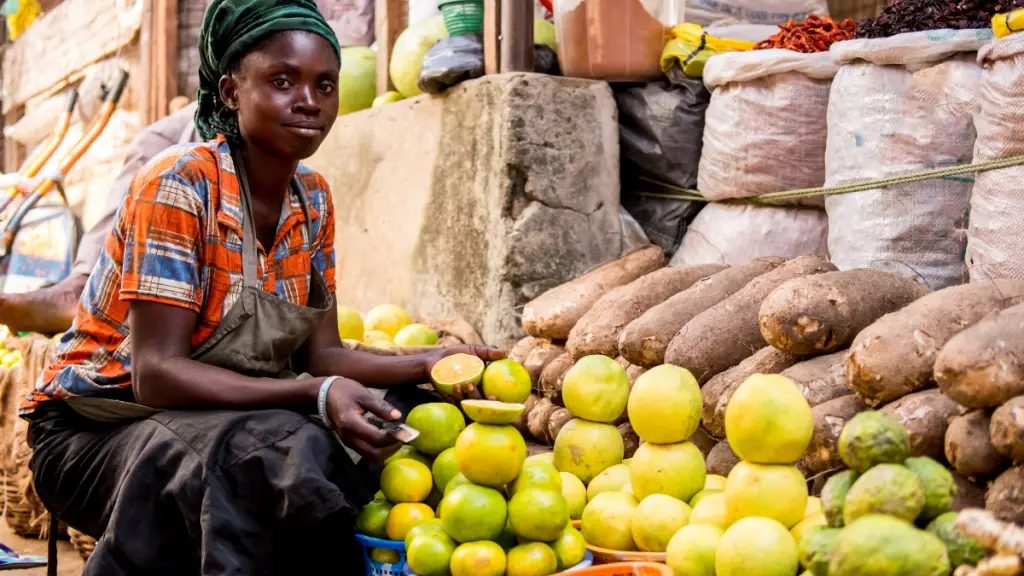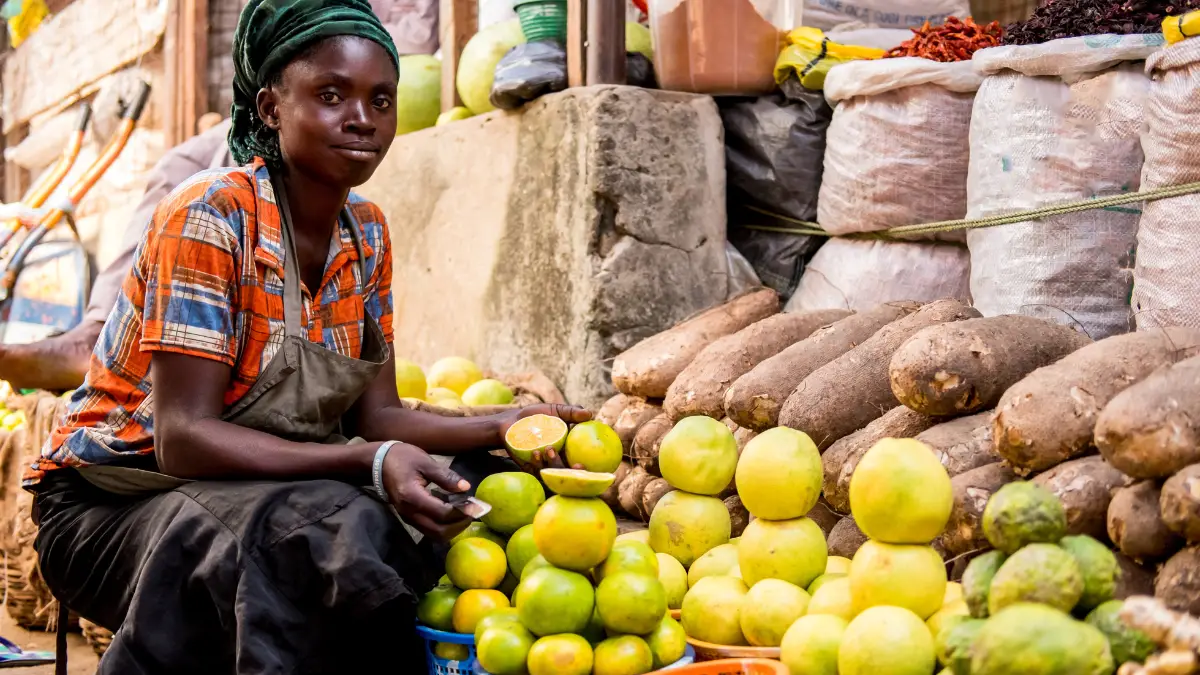Introduction to the Solutions To Kidnapping, Terrorism and Food Insecurities in Nigeria.
Boasting a population of over 220 million people, Nigeria is the 6th most populated country in the world with arrays of mineral resources, massive landmass and the largest delta on earth.
However, according to an article by Premium Times, Nigeria is ranked 6th country in the world for organised crimes, scoring 7.28 points out of 10 and second only behind DR Congo in Africa. An unsatisfactory stat for a developing country and the 2nd largest producer of oil in Africa and 16th in the world with Algeria slightly above to claim the 15th position in 2023 ranking .
Nigeria produces 1.45 million barrels daily on average contributing 5.34% revenue to the country’s GDP in 2023 first quarter, though an uninteresting decrease of three percent from previous years due to decline in demand during the 2020 COVID pandemic.
These unforgivable lapses in human development and security can be attributed to poor governmental policies, lack of empathy and negligence of primary duties by elected and appointed officials across federal, state and local governments in the country.
It’s a global perspective that terrorism activities and insecurities pose a negative impact on economic and human growth in any given country, even in developed countries like America and Russia. Why? Because terrorism reduces a nation’s capital power by destroying investments and business during raids and illegal activities while creating fear in the minds of citizens and immigrants who desire to visit or invest in the country.
Food insecurity on the other hand affects the potential of the citizens to look out for themselves and families physically, mentally and emotionally which can lead to health issues like birth defects, anaemia, suicide ideation, anxiety and lower nutrients intake in children, and hypertension, mental health issues and depression in adults.
Measuring Food Insecurities in Nigeria
About 25 million Nigerians according to OCHA would be food insecure in 2024 with a projected 10% increase from the previous year. The National Bureau of Statistics also recorded a 29.9% inflation in January 2024 with an 8.08% increase compared to 21.82 recorded in January 2023. The food inflation rate in January 2024 was upped to 35.41% on a year-on-year basis, an 11.10% points increase compared to the rate recorded in January 2023 (24.32%). According to the same data from The National Bureau statistics, Food inflation on a Year-on-Year basis was highest in Kogi (44.18%), Kwa ra (40.87%), and Rivers (40.08%) with Kano (30.08%) recording the slowest rise score.
On a Month-on -Month basis, however, Ondo (4.69%), Osun (4.59%), and Edo (4.58%) recorded the highest while Bayelsa (0.24%), Yobe (0.97%) and Ogun (1.44%) recorded the slowest rise score. The rapid increase in Food inflation was caused by an increase in average prices of Potatoes, Yam & Other Tubers, Bread and Cereals, Fish, Meat, Tobacco, and Vegetables.
If the Nigerian government can’t provide or make achievable basic needs like food security, the populace’s commitment to their daily activities would be greatly affected which will negatively impact the country’s creativity and productivity, even worse creating health deficiency in the system.
Other factors contributing to food insecurity include:
Rising Inflation.
Unwarranted impoverishment by elites.
Increment of taxes and of goods prices.
Rising unemployment among youths with no foresight on job creations and opportunities.
Lack of proper compensation for veterans and senior workers.
Poor humanitarian aid and projects geared towards the less privileged or poor implementations of such policies.
Removal of fuel subsidy by the present administration without a relevant contingency plan to cushion the effects.
The problems listed above have compounded the cost-of-living crisis, with deleterious effects on the living conditions of Nigerians and their ability to access food and personal security, a big slap on the face of the new and previous administration regarding the promise made to Nigerians during pre-election campaigns.
About 18.6 million Nigerians were vulnerable to food insecurity from October to December 2023 with a projected increase to 25.6 in 2024. Another report by WFP states that 4.4 million people in Northeast Nigeria will be food insecure in 2024, a brutal situation considering the North, in general, is represented as the food basket of the Nation where products are cheaper and moderate, however, the reverse is the case as Nigerians in North-South and Eastern part of the country have fallen into the deep loom of poverty and food crisis.
Also, prices of market goods and products have skyrocketed to unimaginable amounts with little to no support or empathy from both the state and federal government to curb the situation.
Data by WFP states that 26.5 million people across the country are projected to face acute hunger in the June-August 2024 lean season, a staggering increase from the 18.6 million people food insecure at the end of 2023, a bad news, and a wake up call for Nigerians to start asking the right questions from their representative and government officials.
Here’s the National Bureau Statistics Selected Food Loose Prices Watch report for December 2023 Uploaded on Wed Jan 2024.
| Products | Average Price December 2022 | Average Price December 2023 | Increase rate | |
| Local Rice 1kg | N506.17 | N917.3 | 81.35% | |
| Boneless Beef 1kg | N2,377.29 | N3, 146.94 | 32.8% | |
| Brown Beans 1kg | N586.14 | N870.67 | 48.54% | |
| Tomato 1kg | N458.42 | N814.16 | 77.60% |
Please note these prices may have changed and not reflect the current prices of goods in the country.
Measuring Kidnapping and Terrorism Insecurity
Despite billions allocated towards fighting terrorism and insurgencies by the past President Buhari administration, now succeeded by party member President Bola Ahmed Tinubu, the situation of security in the country has gone rather sour as far as national security is concerned.
It’s a known fact that a peaceful and terrorist-free society is necessary for the development and advancement of any country, however, Nigeria is currently digressing towards these facets— the protection of citizens’ lives and properties— a quota that should be the most important to any progressive Nation in the world.
According to data conflict in the NorthEast region comprising Borno, Yobe, and Adamawa has displaced 2.2 million people
Another report estimated that over 380 persons were kidnapped between December 1, 2023, and January 3, 2024, across Nigeria under the new President Bola Tinubu.
Nearly 3,841 people were reported to have been killed by non-state actors, while 4,243 others were kidnapped in 2023 according to data sourced from the National Security Tracker (NST), an initiative of the Council on Foreign Relations (CFR), and the Armed Conflict Location & Event Data Project (ACLED) Meaning an average of 11 Nigerians were killed and 12 people kidnapped daily in violent attacks, a figure higher than what’s previously recorded in 2021 and 2022.
Another report by the Cable NG estimated that over 60 Nigerians across Barkin Ladi, Bokkos and Mangu LGAs in(over 20 villages) Plateau state were killed on Christmas Eve by terrorists with nobody apprehended till date. It was also recorded that over 100 Nigerians were killed in Mangu in June 2023.
Residents of the Bwari area council in the Federal Capital Territory (FCT) were also reported to be attacked by kidnappers, and about 30 occupants were abducted within the Christmas period.
Solutions: Intergovernmental Relations
Intergovernmental relations among the three tiers and government parastatals are the key to solving the food and terrorist activities embattling the country. What is intergovernmental relations? The term ‘intergovernmental relations’ refers to interactions between different governmental units within a political system.
The concept of intergovernmental relations is associated with states having a Federal Administration system where the relationships between the Federal, Central or National Governmental and major sub-national units (province, region or state) is formed to accelerate security and economic growth.
That is the Federal, state and local government must remove all limitations between them and create a concrete plan to address the crisis embattling the citizens of the country at the given time.
The solutions highlighted below in this article are useless without the total participation of the three tiers in ensuring transparency and implementations of policies and measures created to tackle food, terrorist and kidnapping crises in the country.
Solutions to food insecurities in Nigeria
Broad opportunities for sustainable livelihoods:
Finding a way to curb poverty is the key to fighting food security. The government should improvise ways to provide cost-of-living, poverty support and income support programs through employment, job creation or other intervention methods.
Also, the federal, state, and local governments must focus on subsiding agricultural production and provide entrepreneurial opportunities and funding programs for locals. An important part of this process will be the decentralization of duties to the local people. That is the locals should have a greater say in political processes and be allowed to fashion services to their own needs as much as entrepreneurship, agriculture, and education are concerned.
Locals with the support of the government should be trained in developing skills and capacities that are commensurate with their new responsibilities to survive. Also, any strategy for reducing food insecurity by the governments should include measures for mediating current causes of food insecurity and preventing future ones. This can be done by fostering collaboration with NGOs with proven skills in such tasks.

Creating an enabling environment for local businesses to grow.
To encourage farmers, traders, and business operations in these sectors, the federal government in collaboration with states and locals will need to simplify trade regulations and procedures while investing in physical infrastructure and communication systems through NGOs.
How can this be achieved? Protecting food production and distribution from weather events and other insecurity by creating climate-resilient infrastructure. This type of investment also creates jobs and can catalyze private investment. Consider, for example, solar power plants that facilitate irrigation, water access, and temperature control for food storage in the country or digitization of platforms for farmers to trade, connect, and share crucial information.
They also need to organize systems of protection for businesses and individuals in immediate need as there will always be natural and human-induced disasters, so it is imperative to improve systems for dealing with such emergencies and NGOs and local corporations are the perfect arm for that as they often have more information and can equally carry out research and outreach necessary to tackle these problems.
Creation of social safety nets for the vulnerable
Package relief programs and small-scale credit schemes can be pivotal in assisting locals suffering from food insecurity.
The government should invests in private, charitable food assistance – namely, food banks, as well as food pantries (found in local churches, schools, and non-profit organizations) that provide food directly to individuals and families in need
This can help curb child malnutrition and reduce stress, misery, and frustration in low-income areas and the vulnerable – orphans, the elderly, the handicapped and the otherwise incapacitated. American initiatives like the Feed the Future initiative should be introduced in collaboration with the Federal and state governments to strengthen agriculture-led growth programs to make life bearable for the people so they can survive and bounce back in times of crisis.
Solutions to terrorism and kidnapping insecurity
The Federal, state, and local governments in tandem with the military, police force, and local securities must work together interdependently to ensure that the security of lives and properties is paramount.
- One of the ways they can do this is by monitoring potential individuals or organizations that could become targets of attacks.
- Recognizing radicalization among groups through the gathering of intel.
- Combating terrorism financing by monitoring bank activities of suspected individuals or groups.
- Punishing caught offenders and perpetrators.
- Maximum protection of National and state borders by local security agencies.
- Effective communication and exchange of information between security agents, Judicial and intelligence units to tackle down terrorist groups and organisations.
State policing:
In Sw states like Ondo and Oyo and Eastern states like Anambra, local security forces like Amotekun and ESN have been created to tackle insurgent activities, however that’s is just a start, for strong effectiveness the present administration must ensure these local securities are properly empowered and deployed to every local government area across the country with maximum training and support from the military and police force to defend powerless citizens, farmers and students in the country.
Conclusion
Insurgent activities and food insecurity have added pressure to a fragile economic situation in Nigeria , deepened insecurity, hampered meaningful development, and heightened the insecurity of vulnerable women and children. It’s only right that the present day administration start taking steps towards restoring normalcy by curbing insecurity and reducing food prices to make the country a better place for every Nigerians to live.






